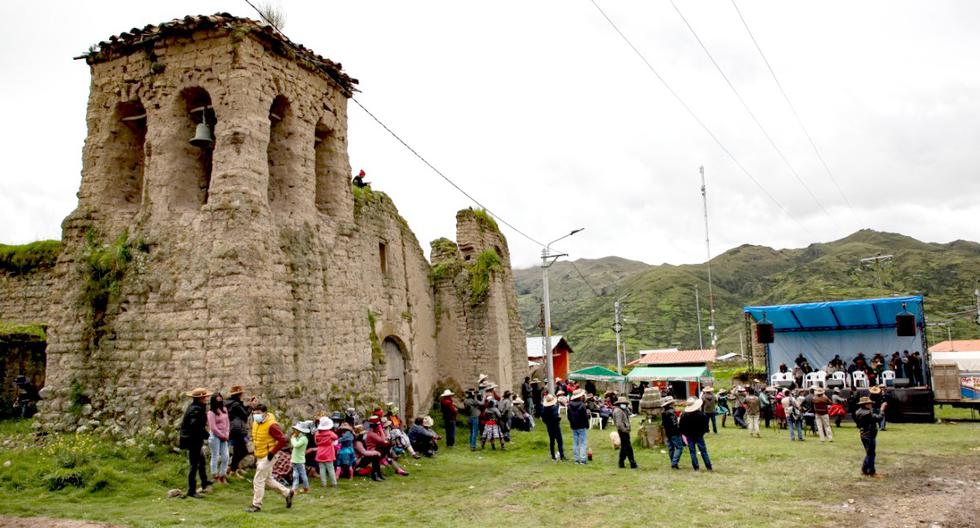In a ceremony that was attended by different regional and national authorities, the Vice Minister of Cultural Heritage and Cultural Industries, Sonaly Tuesta, delivered to the authorities of the Totora Town Center, district of Livitaca, province of Chumbivilcas, Vice Ministerial Resolution No. 000270 -2021-VMPCIC/MC that declares as a monument part of the Cultural Heritage of the Nation the wall structures of the Santiago Apóstol de Totora Temple, plaza and exempt tower, in addition to the declaration of Cultural Heritage of the Nation to the Chapel of Pucyu Ñahui.
SEE ALSO: Communards of Sacsayhuamán carry out traditional boundaries or land delimitation (PHOTOS)
It is important to mention that the wall structures of the Santiago Apóstol de Totora Temple, They are part of the history, environment and rural landscape of Totora, notable for the cultural values it possesses.
Among the cultural values, the historical value of the property stands out for being a physical testimony of the religious architecture of the rural area developed in Cusco, in the 17th century, whose structures are preserved to the present day and is linked to the territory of the revolutionary deed of Túpac Amaru II.
“It is very beautiful to see that the population celebrates and is very happy. From here begins a long process, but quite beneficial for the community. The first step is the sanitation of the property and then the preparation of technical file to give way to the process of restoration and enhancement” announced the Vice Minister of Cultural Heritage and Cultural Industries.
In the same way, he stressed that this heritage is part of his beliefs and his life and that is why it is put at the service of the inhabitants. “This is the spirit of the declaration” said the authority, during the delivery ceremony of the declaration.
For her part, the director of the Decentralized Directorate of Cusco Culture, Magda Mateos, said that the resolution states that the aforementioned real estate is part of the collective memory of the residents of Totora and its cultural significance lies in being an ancestral legacy, product of syncretism, local tradition and foreign influence, recognized and valued by the residents of Totora as a space of worship and folklore of relevant meaning, becoming a benchmark of identity and recognition of its population as an icon of resistance during the revolutionary deed of Túpac Amaru.

















